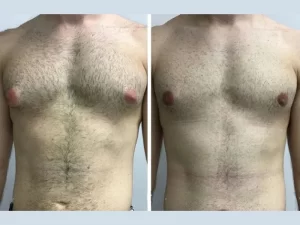Pneumonia in children is a serious respiratory infection that affects their lungs, causing inflammation and difficulty breathing. As a concerned parent, understanding the symptoms, treatment options, and when to seek medical help is crucial for your child’s health. In this blog, we’ll explore everything you need to know about kids pneumonia treatment, including causes, signs, and effective treatment methods, ensuring your child gets the best care possible.
What is Pneumonia in Children?
Pneumonia is a condition where the lungs become inflamed due to infection, often caused by viruses, bacteria, or fungi. In children, pneumonia can develop after a cold or flu, and it’s important to recognize the symptoms early for effective treatment. Kids pneumonia treatment is designed to address the infection, relieve symptoms, and prevent complications like difficulty breathing or long-term lung damage.
Common Causes of Pneumonia in Children
The most common causes of pneumonia in children include:
- Viral Infections: Viruses like the flu, respiratory syncytial virus (RSV), and adenovirus are among the leading causes of pneumonia in young children.
- Bacterial Infections: Streptococcus pneumoniae and Haemophilus influenzae type b (Hib) are common bacterial culprits.
- Fungal Infections: Though rare, fungi can also lead to pneumonia, especially in children with weakened immune systems.
- Aspiration Pneumonia: This occurs when a child inhales food, liquids, or vomit into the lungs, causing infection.
Symptoms of Pneumonia in Children
Recognizing the signs of pneumonia in children can help you act quickly. Common symptoms include:
- Fever: A high fever is one of the most common symptoms of pneumonia in kids.
- Cough: A persistent cough, often accompanied by mucus, can indicate pneumonia.
- Difficulty Breathing: If your child is breathing faster than usual or experiencing shortness of breath, seek immediate medical attention.
- Chest Pain: Your child may complain of pain in their chest or feel discomfort when breathing deeply.
- Fatigue: Pneumonia can cause your child to feel unusually tired or lethargic.
- Loss of Appetite: Children with pneumonia often lose interest in eating or drinking due to discomfort.
When to Seek Medical Help
If you notice any of the following signs, it’s essential to seek professional treatment for kids pneumonia:
- Rapid or shallow breathing
- Bluish lips or face, indicating low oxygen levels
- Severe chest pain or discomfort
- Vomiting or diarrhea along with fever and cough
- Difficulty waking up or staying awake
Treatment for Kids Pneumonia
Kids pneumonia treatment generally depends on the cause of the infection. Treatment options can vary, but the primary goal is to reduce inflammation, fight infection, and relieve symptoms.
- Antibiotics: If bacterial pneumonia is diagnosed, antibiotics are often prescribed to eliminate the infection. It’s crucial to follow the doctor’s instructions and complete the full course of antibiotics, even if your child starts feeling better.
- Antiviral Medications: For viral pneumonia, the treatment focuses on relieving symptoms. Antiviral medications may be prescribed in cases where a virus like the flu is the cause.
- Oxygen Therapy: In severe cases, your child may need supplemental oxygen to help them breathe. Oxygen therapy ensures your child’s oxygen levels remain stable as they recover.
- Inhalers and Nebulizers: If your child experiences wheezing or difficulty breathing, a doctor may recommend bronchodilators via an inhaler or nebulizer to open up their airways.
- Pain Relievers: Over-the-counter medications like acetaminophen (Tylenol) or ibuprofen can help manage fever, chest pain, and inflammation. Always consult your pediatrician for the correct dosage for your child.
- Rest and Hydration: Encourage your child to rest and drink plenty of fluids. Staying hydrated helps thin mucus and eases coughing.
Prevention of Pneumonia in Children
While pneumonia can’t always be prevented, there are steps you can take to reduce the risk:
- Vaccination: Ensure your child is up-to-date on vaccinations, including the pneumococcal vaccine, which protects against bacterial pneumonia.
- Hand Hygiene: Teach your child to wash their hands frequently, especially before eating or touching their face.
- Avoid Exposure to Smoke: Second-hand smoke can increase the risk of respiratory infections in children. Keep your home smoke-free.
- Strengthen Immune Health: Encourage a balanced diet with fruits, vegetables, and adequate sleep to support your child’s immune system.
Why Choose the Best Pediatrician for Pneumonia Treatment?
When it comes to kids pneumonia treatment, consulting an experienced pediatrician is essential for proper care. An experienced pediatrician or Pediatrician in Greater Noida West, like Dr. Vivek Shyam, will diagnose the condition accurately and create a customized treatment plan tailored to your child’s age, health, and symptoms. With over 15 years of experience, Dr. Shyam ensures your child receives expert care for pneumonia and other childhood illnesses.
Conclusion
Understanding the symptoms of pneumonia in children and seeking kids pneumonia treatment promptly can prevent complications and speed up recovery. If your child shows signs of pneumonia, don’t hesitate to contact a trusted Child Specialist in Greater Noida Westlike Dr. Vivek Shyam at ShobhaShyam Pediatric Clinic in Greater Noida West. With the right treatment and care, your child can recover quickly and return to their healthy, active self.
For more information or to book an appointment, call +91 8376097550.






